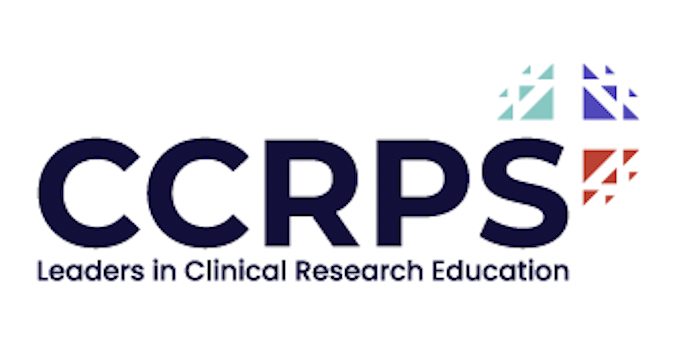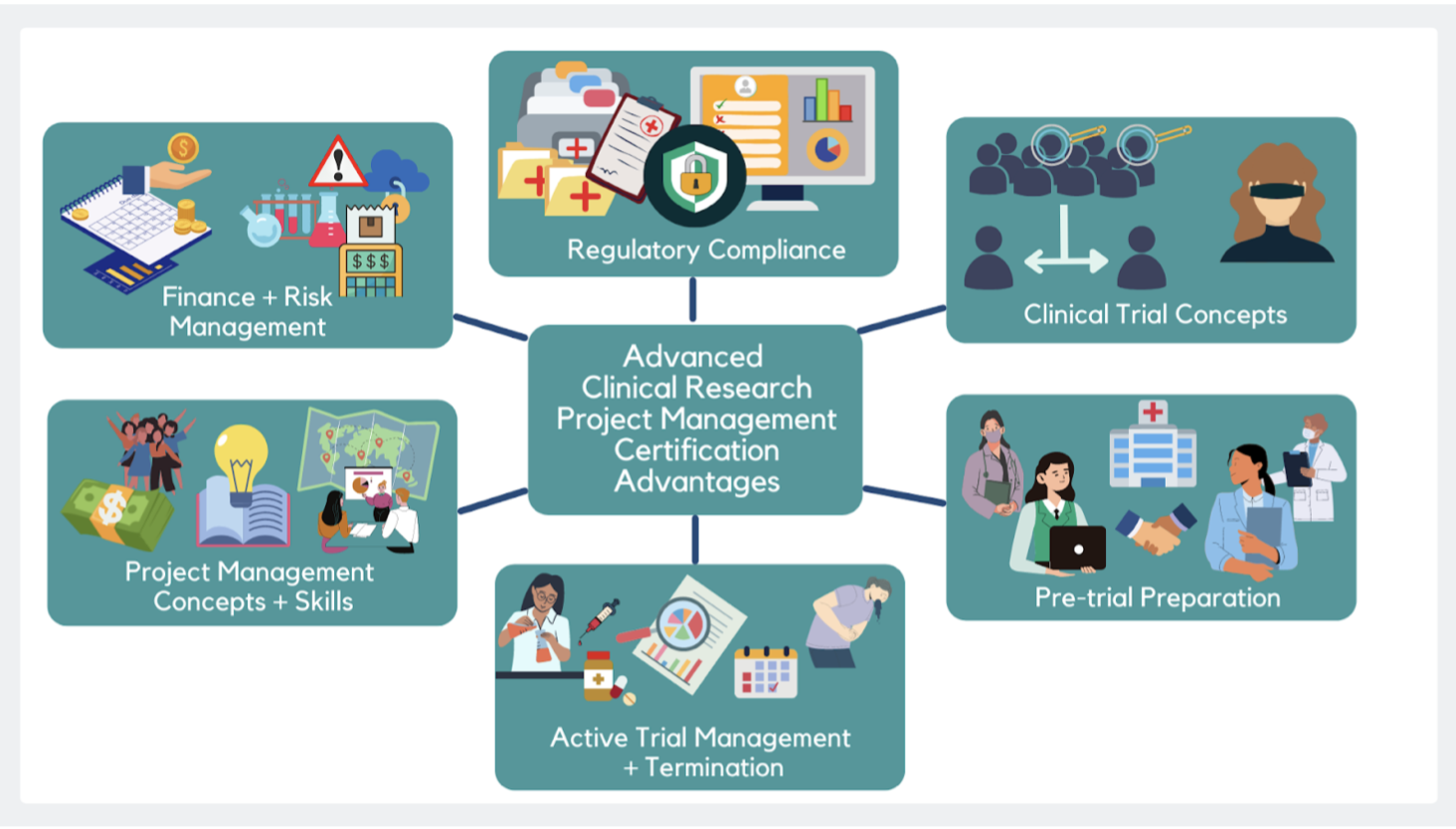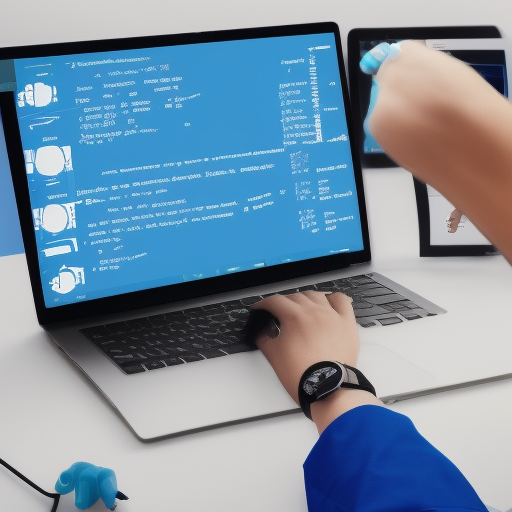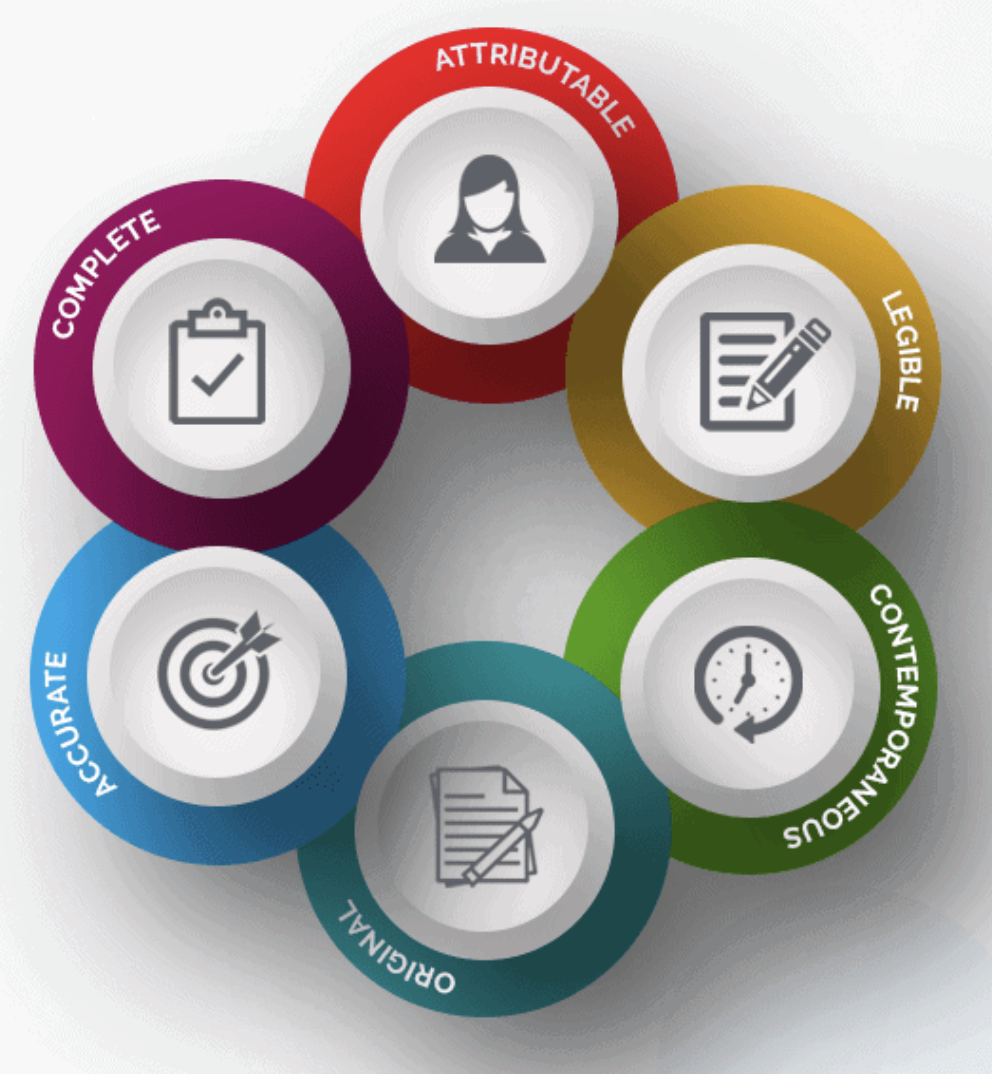A Comprehensive Guide to PMP Certification
Your Project Management Career in 2024:
The project management landscape is ever-evolving, demanding professionals to stay ahead of the curve. Earning a coveted project management certification is a strategic move to propel your career forward in 2024. These credentials not only validate your skills and knowledge but also demonstrate your commitment to continuous learning, setting you apart from the competition.
But with a multitude of certifications available, which one is right for you? Fear not! This blog post serves as your guide to navigating the world of project management certifications, outlining the benefits, popular options, and tips for choosing the perfect fit for your professional goals.
Why Pursue Project Management Certifications?
Enhanced Credibility: Certifications add a layer of credibility to your resume, showcasing your expertise and proficiency to potential employers and clients. They act as a tangible symbol of your project management capabilities, giving you a competitive edge in the job market.
Career Advancement: Certifications demonstrate your dedication to professional development and can open doors to new career opportunities. Employers often view certified professionals as more qualified for project leadership roles. For those interested in the health sciences sector, consider exploring specialized certifications like the Advanced Clinical Research Project Manager Certification or the Advanced Principal Investigator Physician Certification, which are tailored to roles that oversee clinical research initiatives.
Boosted Knowledge and Skills: The preparation process for exams associated with certifications strengthens your foundational knowledge in project management best practices, methodologies, and tools, ultimately refining your skillset.
Popular Project Management Certifications:
The project management certification landscape offers a diverse range of options, each catering to specific experience levels and career goals. Here's a glimpse at some of the most sought-after credentials:
Project Management Professional (PMP): Offered by the Project Management Institute (PMI), the PMP certification is a globally recognized gold standard credential for experienced project managers. It requires a minimum of five years of project management experience and passing a rigorous exam.
Certified Associate in Project Management (CAPM): Another PMI offering, the CAPM caters to aspiring project managers or those with less experience. It necessitates one year of project management experience and passing an exam, making it a valuable first step in your project management certification journey.
Certified ScrumMaster (CSM): This certification delves into the Scrum project management methodology, equipping individuals with the skills to facilitate and guide Scrum teams effectively. No prerequisite experience is required, but successful candidates must complete a CSM training course and pass an exam. For those interested in further specializing in clinical research, consider the Clinical Research Coordinator, Pharmacovigilance Certification, CRA, ICH-GCP, Clinical Trials Assistant Training, and Medical Monitor Certification courses.
Choosing the Right Certification:
Selecting the most suitable project management certification hinges on aligning it with your experience level and career aspirations. Here are some additional considerations to guide your decision:
Industry Requirements: Certain industries may favor specific certifications. Researching industry trends and preferred credentials can help you make an informed choice.
Specialization: Do you have a niche within project management, such as agile methodologies or risk management? Certifications tailored to specific areas can showcase your expertise in that domain.
Cost and Time Commitment: Factor in the exam fees, training costs, and time investment required for preparation to ensure it aligns with your budget and schedule constraints.
Investing in a project management certification is a strategic decision that empowers you to propel your career to new heights. Conduct thorough research, identify the right fit for your goals, and embark on your certification journey. Remember, a coveted credential combined with your dedication and skills can unlock a world of exciting project management opportunities!
References:
There are a variety of different types of project management certifications available, and each has its own benefits
There are a variety of different types of project management certifications available, and each has its own benefits. The most common type of certification is the Project Management Professional (PMP) certification from the Project Management Institute (PMI). This certification is geared towards experienced project managers, and it requires that you have at least three years of experience in project management and 35 hours of project management education. It also includes a rigorous exam that covers topics such as initiating, planning, executing, monitoring and controlling, and closing projects.
Another option is clinical project management certification. This certification is offered by the Clinical Research Professional Society (CCRPS) and it is designed for professionals who work in the biopharmaceutical industry. It is a shorter certification that can be obtained in just a few weeks, and it includes a variety of different modules that cover topics such as clinical research process, regulatory requirements, study design, and more.
Both of these certifications are valuable and can help you boost your career. The PMP certification is more geared towards experienced project managers, while the CCRPS clinical project management certification is designed for professionals who want to work in the biopharmaceutical industry.
The most common types of project management certifications are: PMP, PRINCE2, CAPM, and Clinical Project Management Certification.
Project management certifications are important to have in order to be successful in the project management field. The most common types of project management certifications are PMP, PRINCE2, CAPM, and Clinical Project Management Certification. Each certification has its own requirements and benefits.
The Project Management Professional (PMP) certification is one of the most popular project management certifications. It is offered by the Project Management Institute (PMI) and is designed for project managers who have experience working on projects. In order to qualify for the PMP certification, you must have a four-year degree, three years of project management experience, and 35 hours of project management education. The PMP certification is valid for three years.
The PRINCE2 certification is offered by the United Kingdom Cabinet Office and is designed for project managers who work in the public sector. In order to qualify for the PRINCE2 certification, you must have a two-year degree or equivalent work experience. The PRINCE2 certification is valid for three years.
The CAPM certification is offered by the Project Management Institute (PMI) and is designed for project assistants, team members, and coordinators who have limited experience working on projects. In order to qualify for the CAPM certification, you must have a high school diploma or equivalent, 1,500 hours of experience working on projects, and 35 hours of project management education. The CAPM certification is valid for five years.
The Clinical Project Management Certification (CPCM) is offered by the CCRPS and is designed for clinical research professionals or project managers who want to become certified in clinical project management. The clinical project management certification has no prerequisites but it is recommended that you have a four-year degree in life sciences or a related field and completion of the online course. The clinical research project management certification is valid for three years.
Clinical project management certification roles, training, salary, job outlook
Clinical project management (CPM) is a process that helps improve the quality and efficiency of health care. The goal of CPM is to ensure that projects, from start to finish, are completed successfully and meet the needs of all stakeholders.
There are several different roles within CPM, each with its own set of responsibilities and skills. The most common roles are:
1. Project manager - The project manager is responsible for ensuring that the project meets its goals and deadlines. They create and update the project plan, manage resources and budgets, and ensure that all stakeholders are kept up to date on the project's progress.
2. Quality assurance manager - The quality assurance manager is responsible for ensuring that the project meets quality standards. They work with the team to develop quality control plans and procedures, and track and report on quality metrics.
3. Business analyst - The business analyst is responsible for understanding the needs of the stakeholders and translating them into requirements for the project team. They work with the team to make sure that all deliverables meet customer expectations.
4. Technical writer - The technical writer is responsible for creating and maintaining all documentation related to the project. This includes requirement specifications, user manuals, test scripts, etc.
Training for CPM roles can vary depending on the role itself. But in general, it will cover topics such as process improvement, change management, risk management, communication skills, and stakeholder management.
Certification is also available for CPM professionals. The most common certification is PMP (Project Management Professional). It covers all aspects of project management, from initiating to closing a project. Other certifications include PgMP (Program Management Professional), PfMP (Portfolio Management Professional), and CAPM (Certified Associate in Project Management).
The salary for CPM professionals varies depending on their role, experience, and certifications. But generally speaking, it ranges from $50,000 to $200,000 per year.
The job growth outlook for CPM professionals is positive. As health care becomes more complex and organizations move towards value-based care models, there will be an increased demand for CPM professionals who can help improve the quality and efficiency of health care delivery.
Become a clinical project manager with advanced clinical research project management certification with our course.
The Clinical Research Project Manager (CRPM) certification offered by CCRPS is a globally-recognized credential that demonstrates advanced clinical research project management skills. Earning this certification requires passing a course that assesses your ability to manage all aspects of clinical research projects, from planning and initiation through closure.
To prepare your resume to be a clinical project manager, you must first meet PMI's requirements for experience and education in project management.
Clinical trial project management certification can help you advance your career in clinical research and demonstrate your mastery of the skills necessary to manage complex clinical research projects. It is also a valuable credential for those seeking to work in the pharmaceutical or medical device industries.
In today's job market, it's more important than ever to have certification to back up your project management skills. With so many different types of certifications available, it can be difficult to know which one is right for you. In this blog post, we've outlined some of the most common types of project management certifications and their benefits. We hope that this has helped you narrow down your choices and decide which certification is right for you. If you're interested in becoming a clinical project manager, our course offers an advanced clinical research project management certification that can take your career to the next level. Enroll today and get started on advancing your career in project management!
Clinical Research Project Manager
Clinical Research Project Manager - A Full Guide To Becoming a Clinical Trial Project Manager
As of mid-April 2022, top recruitment platform ‘indeed.com’ lists 6,026 openings for Clinical Research Project Managers across the United States[1]. According to ‘payscale.com’, remuneration for this profile ranges from $84,168 for early-career to $120,501 for experienced Clinical Research Project Managers, with a mid-career median of $107,649[2].
A Clinical Research Project Manager (henceforth CRPM) is also known as a Clinical Research Manager or a Clinical Trial Manager. The role of a CRPM is to provide leadership during the clinical trial of new drugs, with the overarching goal of ensuring that the clinical trials process is completed within the stipulated time-frame and allocated budget, while maintaining the highest standards of research quality and scientific integrity.
An overview of the CRPM profile
A Clinical Research Project Manager is the liaison between the study sponsor and the clinical research team. Thus, the CRPM must balance the expectations of the funding organization in a clinical research study (pharmaceutical company, governmental agency, university research division or other entity) with the needs of the team, including Principal Investigators (PIs) and co-PIs, Clinical Research Coordinators (CRCs), Clinical Research Associates (CRAs), and Clinical Trial Assistants (CTAs) and other site staff.
The CRPM plays a leading role in planning, implementation and ongoing monitoring of live clinical trials. In the process, a CRPM also mentors junior team members, including CRAs and CTAs.
Evidently, a career as a CRPM is rewarding, but also demanding. So, what does it take to qualify and be recruited as a Clinical Research Project Manager?
The road-map to becoming a CRPM
Even if you’re new to the field of clinical research, you’ve probably guessed by now that becoming a Clinical Research Project Manager takes both qualifications and experience. A typical CRPM has a bachelor’s (or master’s) degree in life science, combined with four to five years’ experience in one or more clinical research roles such as CRC, senior CRA or QPPV (Qualified Professional in Pharmacovigilance).
Irrespective of where you are along this path, the remainder of this article charts a clinical research professional’s journey of growth in developing into a competent CRPM. For conceptual convenience, the process is discussed in two parts – Part 1 centers on the research and administrative skills needed for a CRPM, while Part 2 revolves around expertise in project management. The final sections address how the Advanced Clinical Research Project Manager Certification or ACRPMC facilitates the transition to a CRPM role.
The CRPM journey, Part 1: Research and administrative skills
By the time a clinical research professional is eligible to apply for a CRPM position, s/he has typically developed a range of competencies in the day-to-day running of clinical trials. In addition, a professional at this stage has usually acquired a good working knowledge of the planning and oversight required for a clinical research study.
In broad strokes, a CRPM candidate likely already has a knowledge base and skill sets in the following areas:
1. ICH-GCP guidelines, Title 21 of FDA CFR and IRB compliance
One of the first things every clinical research professional learns is the importance of adhering to the principles and policies of good clinical practice, as outlined in the ICH-GCP[3]—these guidelines set the framework for carrying out research in a manner that prioritizes the safety and welfare of human subjects and the quality and integrity of clinical data.
The ICH-GCP principles are mirrored by Title 21 within the US FDA’s Code of Federal Regulations (CFR)[4]. Clinical research across the US must conform to the requirements of Title 21. Part of Title 21 regulatory compliance requires nearly all clinical research studies to first be approved by an Institutional Review Board or IRB (also called an Ethics Committee). As clinical trials progress, any changes to the study trial protocol, consent procedures or data management system must likewise first be reviewed and approved by the IRB.
The CRPM has final responsibility for ensuring that all documentation necessary for clinical research regulatory compliance is maintained and updated as needed.
2. Clinical trial design concepts and parameters
A sound grasp of the clinical trials process is similarly a must for senior professionals in the team. Candidates for CRPM positions are thus expected to have a thorough understanding of key concepts and procedures relating to clinical research, including:
Phases 1 to 4 of clinical trials[5]
Investigational products (IPs) including INDs and IDEs
Design concepts in clinical trials - control, randomization and blinding
Subject screening and selection, retention and study compliance
Trial data input, quality assurance, analyses and reporting
Adverse Event (AE) documentation and reporting
3. Pre-trial preparation
In some ways, the most crucial phase of a clinical trial is the preliminary or preparatory phase, during which all groundwork must be laid for the smooth and efficient conduct of the actual study. This phase must typically achieve the following objectives:
Complete documentation for initiating clinical trials[6] – An IRB-approved clinical trial must have in place a host of documents covering important aspects of the study, including the investigator brochure (IB), trial master file (TMF), informed consent form, case report form (CRF), subject recruitment notice, laboratory protocol, study financial projections and so on.
Identification and preparation of study site(s) – Most clinical research studies are run across multiple sites, which may be hospitals, clinics or other health-care facilities. Identifying suitable sites, establishing collaborative agreements with site administrators, as well as setting up the required infrastructure to carry out trials at each site is crucial in preparing for a clinical research study.
Pre-trial publicity – The success of clinical trials depends on gathering large amounts of data from human subjects. Therefore, creating public awareness and interest right from the outset is critical to running clinical research studies effectively.
When setting up a study, the CRPM plays a central role in initiating and fulfilling each of the goals outlined above. Under the CRPM’s guidance, clinical research administrative staff including CRCs and CRAs work to put relevant documentation in place, prepare study sites and create public awareness about the study.
4. Active trial administration
The day-to-day running of an active clinical trial involves numerous administrative components, including:
hiring and training staff at clinical sites
tracking subject recruitment and retention
regulatory compliance in trial protocol, subject safety and data quality
Adverse Event (AE) documentation and reporting
oversight of trial drug storage and use
coordination among research teams across sites
tracking study finances
communication between study sponsors and clinical staff
electronic data capture (EDC) and management
timely renewal of necessary financial and regulatory approvals
These tasks are distributed among members of the investigative teams (PIs, co-PIs and other medical personnel) as well as administrative teams (CRAs, CRCs, QPPVs and other site staff). However, the CRPM is ultimately responsible for ensuring efficient administration that keeps the clinical trial on track.
5. Study termination procedures
Winding up a clinical trial similarly entails a number of administrative exercises. Here again, the CRPM must oversee execution, guiding team members in completing tasks on schedule and to the required standard:
site close-out (relieving staff, subject debriefing, equipment surrender)
final data consolidation and scrutiny
study completion documents for regulatory compliance
compilation of briefs and reports for regulatory authorities, study sponsors
The CRPM journey, Part 2: Expertise in project management[7]
Most aspirants to CRPM positions have usually been engaged in the clinical research process for at least a few years. Many have played administrative roles, working as CRCs, senior CRAs, QPPVs or site managers. In some cases, CRPM aspirants have clinical backgrounds, with expertise in drug research or medical monitoring.
Despite their hands-on experience with the clinical trials process, professionals wishing to transition to CRPM roles usually have limited exposure to the higher-level project management knowhow that is essential for an effective CRPM. This section provides a brief overview of the major project management domains relevant to clinical trial management:
1. Project and operations planning
A clinical trial is a major operation, involving a range of geographical and health-care settings, multi-disciplinary teams, as well as a complex array of regulatory and logistical requirements. Planning the stages, milestones and operations of a clinical trial is integral to assuring its success. Therefore, project and operations planning are the top priorities of a CRPM.
Some of the key elements involved in planning a clinical trial include:
Compiling a comprehensive study protocol describing the rationale, aims, design and methodology, data analysis plans, and trial procedure (/protocol)
Setting project goals, deliverables and milestones
Outlining a project personnel schematic that delineates team and sub-team structure and defines individual team member roles
Generating a responsibility blueprint with a clear break-up of tasks, targets and time-lines for each project goal and each team member
Creating a communication plan that outlines the method and schedule for relaying information, updates and requests between and within teams
2. Financial forecasting and tracking
One of the biggest challenges confronting a CRPM is keeping the trial within budget, while making sure that resources are optimally allocated to cover all necessary project-related expenses. Clinical trials often suffer from scope creep, that is, the inclusion of additional goals and deliverables to those originally outlined, resulting in the project overshooting budget and time-line.
It is therefore recommended practice for a CRPM to work with study sponsors and senior team members in compiling a budget management plan at the very outset of the project. Such a plan not only specifies financial outlay for each of the goals and deliverables of the clinical trial, it also provides for periodic budget revisions to account for factors such as expanded project scope, rising costs and supply-chain changes.
3. Human resource allocation and oversight
The section on project and operations planning highlighted the importance of creating a personnel schematic as well as a responsibility blueprint at the start of a clinical trial. Through this process, a CRPM is able to clearly define roles for various team members in meeting project goals and milestones, and their contributions to each project deliverable.
However, in order to ensure collaborative effort and a cordial work environment, it is essential for a CRPM to also formulate a transparent hiring policy as well as disciplinary policy. These may be specific to the clinical trial or apply broadly across the CRO, or Clinical (/Contract) Research Organization. Well-documented policies facilitate the CRPM’s role in sourcing and motivating the best-fitted staff to play different roles in the clinical team.
4. Clinical data management and quality control
The data from a clinical trial are often its most valuable project outcome. As such, effectively managing the input, storage, analysis and quality control of study data is one of the foremost responsibilities of a CRPM.
Before beginning the active phase of the clinical trial, a CRPM coordinates with team members to put in place the following aspects of data management:
physical data storage system (files, binders, shelves, cabinets, etc.)
electronic data capture (EDC) and management system
physical and electronic data security systems
data input procedure
data cleaning and quality monitoring procedure
data sharing (import, export, access across clinical sites and teams)
data analysis and visualization procedure
periodic data review and reporting procedure
5. Risk management and mitigation
Owing to the high stakes nature of clinical research, running a clinical research study carries numerous risks. One of the major responsibilities of a CRPM is to develop a risk management plan to identify and circumvent potentially risky situations, and to mitigate consequences to the project in cases where an unforeseen risk impacts the trials process.
Some sources of risk in the management of a clinical trial include:
failure to obtain or document subject informed consent
errors in following trial protocol (timing, dosage, subject screening, etc.)
data security breach leading to compromised subject confidentiality
inadequate insurance coverage for potential adverse events of study
financial constraints arising from changes in study funding
limitations on study scope due to revisions in regulatory policy
Bridging the gap: Using ACRPMC to transition from clinical research professional to project manager
The foregoing section outlined how, despite their strong base in clinical research, CRPM aspirants generally lack the advanced knowhow and managerial skills required for leading a clinical research project. CCRPS’ Advanced Clinical Research Project Management Certification (ACRPMC) provides an excellent tool for bridging this gap and bringing candidates up to speed in all domains of clinical research management.
The table below offers a summary of the focus areas of the ACRPMC, detailing how each contributes to enhancing a candidate’s expertise and eligibility for the role of a Clinical Research Project Manager.
ACRPMC Focus Area |
Contribution to CRPM Candidate Eligibility |
ADVANCED REVIEW - I: Regulatory compliance in clinical research |
i.Fundamentals of subject (/patient) safety, ICH-GCP E6, Sections 2 - 4 |
ii.Regulatory compliance – FDA-CFR Title 21, Forms FDA 1571, 1572, 3454, 3455 |
|
iii.Investigational New Drug (IND) & New Drug Application (NDA), Investigational Device Exemption (IDE) |
|
iv.IRB, Data Safety Monitoring Board (DSMB)[8] |
|
ADVANCED REVIEW - II: Clinical trial concepts |
i.Process & phases of clinical testing (pre-clinical and phases 1 to 4) |
ii.Importance of ‘control’ in testing[9], outcome validity, control methods (randomization, blinding) |
|
iii.Subject (/patient) selection[10]: screening & exemption criteria, selection & retention, study compliance |
|
iv.Clinical trial data management[11]: EDC, Clinical Trial Management Systems (CTMS), Interactive Response Technology (IRT), Randomization & Trial Supply Management (RTSM) |
|
v.Subject safety[12]: Risk assessment & Individual Case Safety Reports (ICSRs), Adverse Events (AEs), Adverse Drug Reactions (ADRs), Important Medical Events (IMEs) |
|
ADVANCED REVIEW - III: Pre-trial preparation |
i.Documentation[13]: Regulatory binder, Investigator Brochure (IB), Trial Master File (TMF), Case Report Form (CRF), Delegation of Authority Log (DOAL), etc. |
ii.Site preparation[14]: Site Selection Visits (SSVs), Site Qualification Visits (SQVs), site management agreements, investigator selection |
|
iii.Pre-trial publicity: Advertisement for subject recruitment & retention |
|
ADVANCED REVIEW - IV: Active trial management & trial termination |
i.Clinical trial protocol compliance, deviations & violations |
i.Clinical site monitoring: subject safety, drug storage & safety, regulatory compliance |
|
ii.Data monitoring: data security & access, Quality Management System (QMS), Quality Control (QC), Key Quality Indicators (KQI) |
|
iii.Team monitoring: communication & collaboration, adherence to trial & safety protocols, research integrity & fraud |
|
iv.Reviews & audits[15]: document & site audits, data audits, financial audits |
|
v.Study termination: site close-out visits, data consolidation, subject debriefing |
|
EXPERTISE BUILDING - I: Clinical project management fundamentals |
i.Project management basics[16]: key concepts, Project Management Body of Knowledge (PMBOK) |
ii.Skills of a project manager: technical, administrative, human resources, public relations |
|
iii.Clinical project stakeholders: sponsors, IRB, investigative & administrative staff, site administrators |
|
EXPERTISE BUILDING - II: Advanced clinical project management |
i.Project planning & tracking, progress evaluation metrics |
ii.Financial management[17]: project budgeting, site budgeting, advertising budget, payment tracking and management |
|
iii.Risk management & problem solving[18]: problem solving managerial skills, identifying risks, avoiding failures, resolution of project problems (protocol deviations, compliance failures, project delays) |
Fast-track to CRPM with the ACRPMC advantage
From the above summary table, it can be seen that the ACRPMC[19] program of CCRPS covers the entire spectrum of competencies required for managerial clinical research professionals. In addition to providing in-depth training in clinical project management concepts, tools and techniques, the program includes a review of foundational as well as advanced knowledge of the clinical trials process.
Aside from its comprehensive curriculum, certification through ACRPMC offers major benefits over conventional clinical research management courses, both online programs as well as those offered by colleges and universities. Some of the outstanding advantages of ACRPMC are:
1. Foundational review plus advanced training
The ACRPMC program stands apart from other online programs in its unique ability to launch as well as advance careers in clinical research. The program is equally effective at helping an aspiring graduate (BA in science or BS degree) to gain a competitive advantage in the clinical research job market, as it is at catapulting a senior clinical researcher into a managerial position.
For CRPM aspirants in particular, the ACRPMC provides an unrivaled opportunity to brush up on the basics, in addition to acquiring valuable knowhow in clinical research project management, before embarking on the applications and interview process.
2. Over 100 training modules (250 hours of coursework)
The course comprises over 100 modules. The advanced review focus areas address all aspects of the clinical research process, including important investigative concepts (trial design, randomization, subject screening, data analysis, etc.) as well as administrative processes (maintenance and updating of regulatory documents, case reports, trial logs, etc.). Additionally, the expertise building focus areas of the ACRPMC cover basic and advanced project management concepts and skills that equip candidates to tackle the challenges of leading a clinical research study.
3. ICH-GCP E6R2 compliant
Designed by experienced Clinical Research Project Managers, the ACRPMC curriculum is fully compliant with the regulatory requirements of the ICH-GCP E6R2. The course coordinators additionally ensure that the content is regularly updated to reflect revisions to policy and new requirements.
4. Immediate enrollment and fast-tracked certification
Unlike college and university courses, trainees can enroll in the ACRPMC with just a few clicks. In addition, the self-paced course design allows students to skim through familiar topics, while giving more time and attention to new material. This is especially advantageous for working professionals and senior clinical research professionals wishing to refresh their knowledge. Trainees able to dedicate several hours per day to the program can complete the ACRPMC in as little as two weeks.
5. Multiple accreditations and industry-wide recognition
For ACRPMC-certified trainees, the solid credentials of the program confer a huge benefit when applying and interviewing for clinical research positions. Like other CCRPS courses, the ACRPMC is also accredited to ACCRE (Accreditation Council For Clinical Research and Education), ACCME (Accreditation Council for Continuing Medical Education) as well as ACPE (Accreditation Council for Pharmacy Education).
6. Clinical research résumé building and interview preparation
The final modules of the ACRPMC help trainees in building their ability and confidence to face interviews for clinical research positions. Trainees completing the comprehensive final examination not only have immediate access to a digital certificate, but are eligible to receive a letter of recommendation (LoR) that can strengthen their clinical research job application.
As the clinical research industry continues to grow at an unprecedented pace, there is rising demand for Clinical Research Project Managers who can blend their skill and experience in clinical research with savvy, expert project management abilities. As a professional clinical researcher, the ACRPMC program offers you an unmatched opportunity to refresh existing knowhow and acquire new competencies, thereby leveraging your rise to the top echelons of management.
If you are a fresh graduate, the ACRPMC represents an unequaled, early-career edge in the clinical research arena. By equipping you with foundational as well as advanced knowledge and skills, ACRPMC certification does not merely improve your chances of securing an attractive clinical research position, it assures the rapid upward growth of your career graph.
Advanced Clinical Research Project Manager Certification (ACRPMC) program advantages.
References
https://www.indeed.com/jobs?q=Clinical%20Trial%20Manager&l&vjk=311beece3c2d98b6
https://www.payscale.com/research/US/Job=Clinical_Trial_Manager/Salary
Dixon JR. 1999. The international conference on harmonization good clinical practice guideline. Quality Assurance. 6(2): 65-74. DOI: 10.1080/105294199277860
https://www.accessdata.fda.gov/scripts/cdrh/cfdocs/cfcfr/cfrsearch.cfm?fr=312.32
https://ichgcp.net/8-essential-documents-for-the-conduct-of-a-clinical-trial
Cullen H. 2016. Effective project management for clinical trials: A business approach. Ebook: https://www.imperialcrs.com/files/Project_Management_Ebook_Final.pdf
Jüni P, Altman DG, Egger M. 2001. Assessing the quality of controlled clinical trials. BMJ. 323(42). DOI:10.1136/bmj.323.7303.42
Farrell B, Kenyon, S, Shakur H. 2010. Managing clinical trials. Trials 11(78) DOI:10.1186/1745-6215-11-78
von Itzstein MS, Hullings M, Mayo H, Beg MS, Williams EL, Gerber DE. 2021. Application of Information Technology to Clinical Trial Evaluation and Enrollment: A Review. JAMA Oncol. 7(10):1559–1566. DOI:10.1001/jamaoncol.2021.1165
Yao B, Zhu L, Jiang Q, Xia HA. 2013. Safety Monitoring in Clinical Trials. Pharmaceutics. 5(1):94-106. DOI: 10.3390/pharmaceutics5010094
https://files.nccih.nih.gov/s3fs-public/CR-Toolbox/Regulatory_Binder_Checklist_ver3_07-17-2015.docx
https://www.appliedclinicaltrialsonline.com/view/selecting-study-appropriate-clinical-sites-3-steps
https://www.clinicaltrialsarena.com/news/how-to-prepare-for-an-fda-site-inspection-5739632-2/
PMBOK® Guide (7th ed.). 2022. Project Management Institute.
Appleson M. 2015. The importance of budgeting in clinical trials and how a budget can prevent billing errors. Clin Invest. 5(5): 437-439. DOI: 0.4155/CLI.15.11
Robinson M. 2005. Clinical trials risk management (1st ed.). CRC Press. DOI: 10.1201/9781420037654
https://app.ccrps.org/courses/Advanced-Clinical-Research-Project-Manager-Certification














